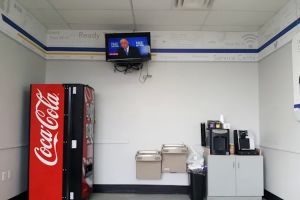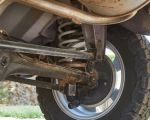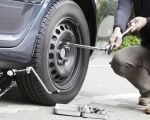- 1-Understanding-the-Need-to-Jump-Start-a-Car-Battery
- 2-Preparing-Safely-for-the-Jump-Start-Process
- 3-Step-by-Step-Guide-to-Jump-Starting-Your-Car
- 4-Common-Mistakes-to-Avoid-When-Jump-Starting
- 5-Real-Life-Experience-of-Jump-Starting-a-Car
- 6-When-to-Call-Professional-Rescue-Services
1. Understanding the Need to Jump Start a Car Battery
Experiencing a dead car battery is one of the most common roadside emergencies drivers face in the United States. Knowing how to jump start a car battery can save you time and money by getting you back on the road quickly. A battery typically dies due to leaving lights on, extreme weather conditions, or age-related wear. Jump starting temporarily provides the power needed to start your engine by using another vehicle’s battery as a power source.
This emergency procedure is essential knowledge for all drivers, especially in remote or cold-weather regions where assistance may be delayed. Proper understanding ensures you can perform the jump start safely, avoiding damage to your vehicle’s electrical system.

NTB-National Tire & Battery
6315 Prentiss School Dr, Canal Winchester, OH 43110, USA
2. Preparing Safely for the Jump Start Process
Safety should be your top priority before attempting to jump start a car battery. Begin by ensuring both vehicles are turned off and parked in a safe location, ideally on level ground away from traffic. Locate the batteries in both cars, often under the hood, and identify the positive (+) and negative (-) terminals clearly.
Wear protective gloves and eyewear if available, as batteries contain corrosive acid and can emit explosive gases. Make sure jumper cables are in good condition without exposed wires or damage. Read the owner’s manual of your vehicle for any specific jump starting precautions, as some modern cars have sensitive electronics that require careful handling.

Pep Boys
1200 W Washington Blvd, Los Angeles, CA 90007, USA
3. Step-by-Step Guide to Jump Starting Your Car
Follow these steps to jump start your car battery effectively:
- Attach one red jumper cable clamp to the positive (+) terminal of the dead battery.
- Connect the other red clamp to the positive (+) terminal of the good battery.
- Attach one black clamp to the negative (-) terminal of the good battery.
- Connect the last black clamp to an unpainted metal surface on the dead car’s engine block or frame, away from the battery.
- Start the working vehicle and let it run for a few minutes to transfer charge.
- Attempt to start the dead vehicle. If it doesn’t start, wait a few more minutes and try again.
- Once the dead car starts, carefully remove the jumper cables in the reverse order.
- Keep the jumped car running for at least 20 minutes to recharge the battery.
This step-by-step process minimizes risks and maximizes the chances of success.
4. Common Mistakes to Avoid When Jump Starting
Avoiding mistakes during jump starting is crucial for your safety and the vehicle’s integrity. Never connect the negative cable directly to the dead battery’s negative terminal, as this increases the risk of sparks and explosion. Improper cable placement or mixing up polarity can cause severe electrical damage.
Another common error is attempting to jump start a severely damaged or leaking battery, which should be handled by professionals. Also, rushing the process without allowing enough time for charging or removing cables too quickly can result in failure or harm.
5. Real-Life Experience of Jump Starting a Car
John, a driver in Denver, Colorado, shared his story of using jumper cables to revive his dead battery during a winter snowstorm. His preparedness with quality cables and knowledge of the jump start procedure enabled him to start his car safely and continue his journey home. John’s experience underscores the value of being equipped and informed about how to jump start a car battery, especially in harsh weather conditions.
6. When to Call Professional Rescue Services
While learning how to jump start a car battery is empowering, some situations require professional help. If your battery repeatedly dies, your vehicle won’t start after multiple jump attempts, or you notice battery damage, calling a towing or roadside assistance service is advisable. Professional services like Rescue & Towing provide expert support, ensuring your vehicle’s safety and reliable transport to repair shops.
They can also offer battery replacement and diagnostic services on-site, saving you time and hassle. Knowing when to seek professional assistance can prevent further vehicle damage and guarantee peace of mind.





























